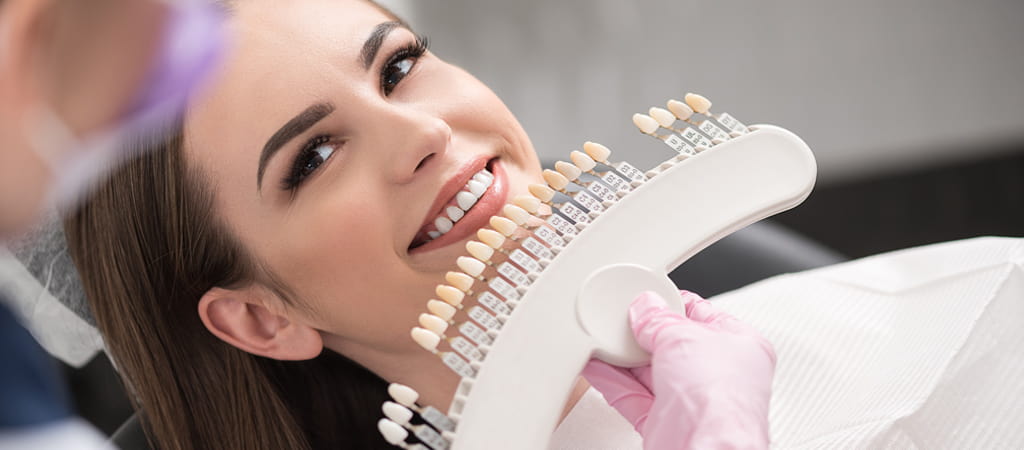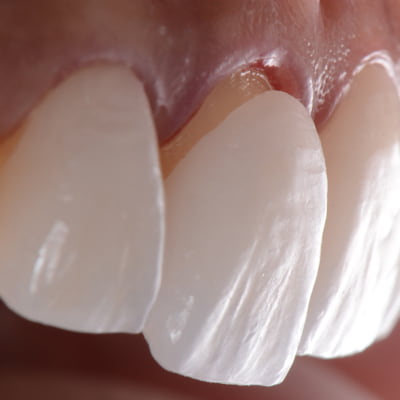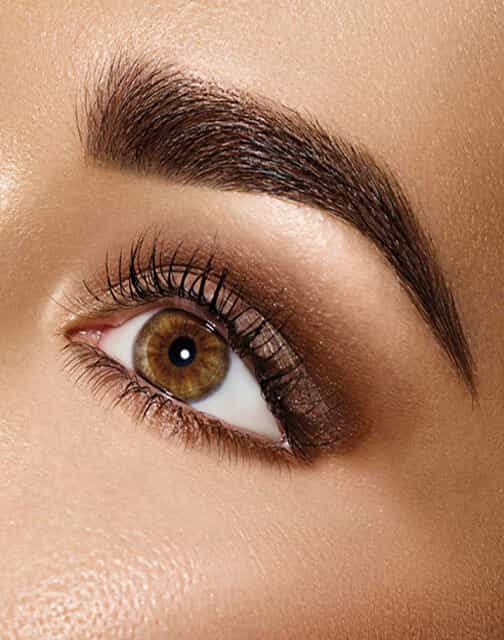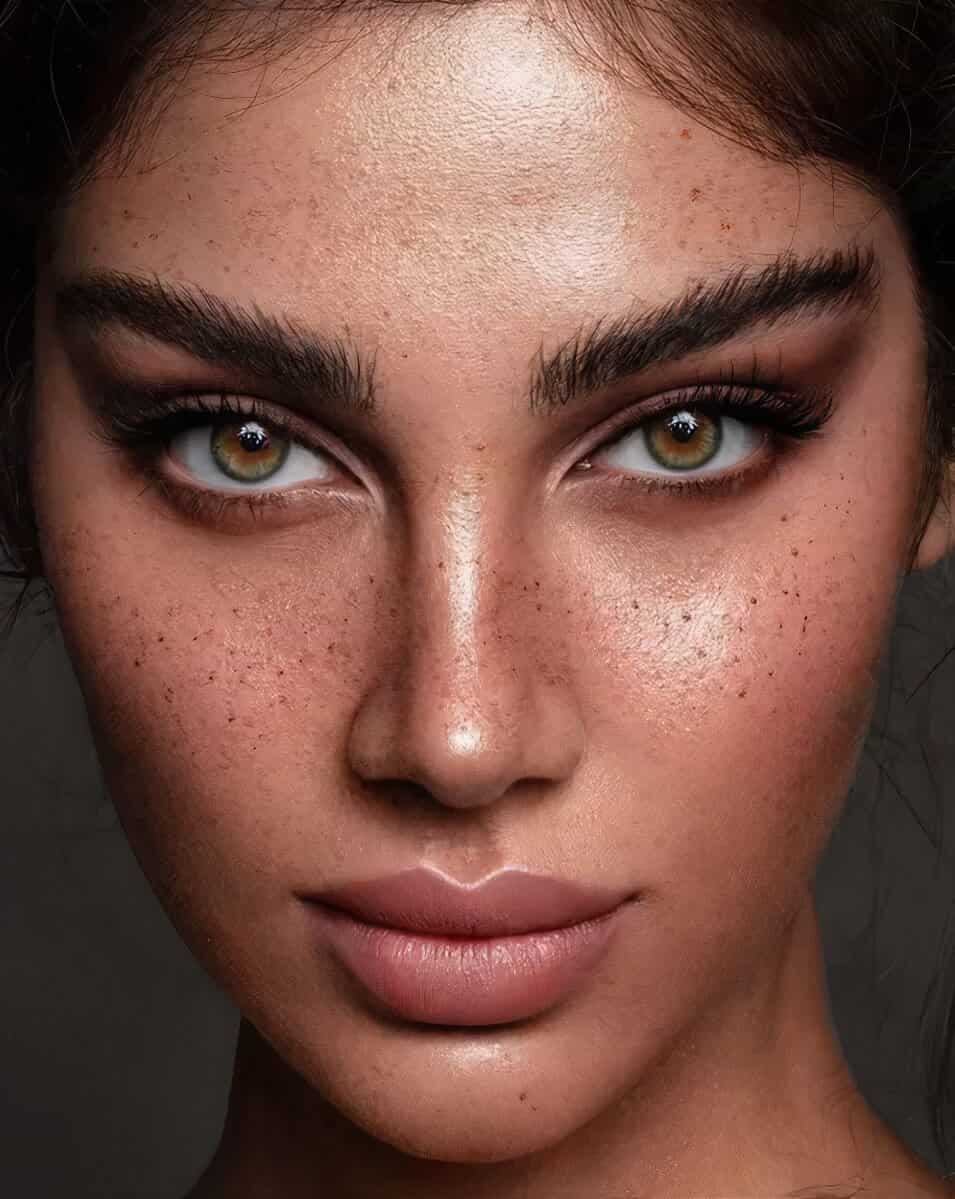What are Dental Veneers?

Dental veneers are a special cap applied on top of teeth that have been exposed to erosion, breakage, decay and/or other dental issues. The treatment is also very popular in dental aesthetics as it helps to give a perfectly natural set of teeth.
The teeth to be covered with a veneer is lightly abraded before measurements are taken for custom-made veneers. Once the veneers are ready, they are fitted onto the tooth with special adhesives.
With the increasing interest in dental veneers in recent years, various methods have been developed and the variety of veneers has increased over time. Special durable materials are used to make the teeth look more aesthetically pleasing as well as more natural-looking veneers. Long lasting veneers also cancel out any yellowing and/or staining problems. All veneers are prepared and operated on in a clinic.

Who are Dental Veneers Suitable For?
Dental veneers are suitable for patients who have completed full jaw development (adults). A dental veneer procedure does not require the extraction of teeth and healthy teeth are not damaged in the process. Patients with tooth loss opt for dental veneers as it has a very natural look.
Some conditions that are suitable for dental veneers are as follows.
- In cases of tooth separation and/or slight crookedness
- In cases of permanent yellowing and stained teeth
- Patients who are after a whiter and more aesthetically pleasing look.
- Fill gaps and spaces between teeth.
How is a Dental Veneer Procedure Performed?
Veneers are amongst the popular choice for a naturally looking, beautiful smile, repair decays and fix wear and tear. A typical procedure involves carving a fine abrasion on the surface of the tooth that requires the veneer. The previously prepared leaf-shaped veneers are then attached to the surface of the tooth with special adhesives.
The steps of the procedures are as follows:
- Firstly, the tooth or teeth to be coated are measured.
- The type of veneer to be applied is selected according to the measurements made.
- Then the teeth are cleaned.
- Molds are prepared and temporarily placed on the tooth to give it the shape required for a dental veneer.
- The patient uses the temporarily placed mold to test if the tooth is suitable for a veneer.
- Lastly, the tooth is crowned with the veneer and the procedure is completed.
The practitioner will decide the type of veneer that is suitable for the teeth/tooth depending on the patient’s dental tissue, dental health and patients needs. The overall treatment should take a minimum of two sessions at the clinic, depending on ofcourse the condition of the patient’s teeth health.
Patients can expect to use the veneers for a long time provided they follow correct dental hygiene and the instructions given by the practitioner.
What Are The Different Types Of Dental Veneers?
There are three different types of veneers: zirconium, porcelain, and emax.
Emax Dental Veneers
Emax dental veneers are among the most recently developed methods in dental veneers. With this method, a ceramic coating is made without any traces of metal substructure and since there is no metal in the substructure, it fully reflects the light. This provides for an extremely natural appearance making it the preferred treatment for the perfect smile.
The benefits of Emax veneers are:
- Long lasting
- The special ceramic coating is fully compatible with the human body
- Better quality
- There is a bigger variety of colors and bright whites to choose from
Emax dental veneers are also preferred as there is no yellowing tone, and wont yellow in the near future, its unbreakable and transparent. People also favor Emax as it helps with curvature problems of teeth. After the curvature of the teeth is corrected by a practitioner, Emax coating is applied. Teeth that have had a root canal also have the possibility to break over time. Emax coating also eliminates the possibility of fracture due to its durability. This also applies to other fractures or cracks in the teeth. Its also especially useful for split teeth. With the Emax laminate (emax veneer) method, leaf-shaped veneers are prepared after the tooth to be treated is measured.
Zirconia Veneers
Zirconia veneers are among the most preferred treatments due to its durable material that is bonded directly to the tooth without the need of a metal substructure. It is also used as a coating for decayed teeth.
Today, however it is mainly used for aesthetic purposes both on the front of the tooth and the back and does not limit the patient from using their teeth.
Zirconia features also include the following.
- Has a natural appearance
- Can be used for a long time without breaking and cracking
- High resistance to corrosion and abrasion
- With its translucent feature, it blends well with other teeth revealing a more natural look.
Zirconia veneers can be used for many years due to its durable, robust make. If looked after properly, zirconia veneers wont yellow or stain over time and since they don’t contain any metal, there is no harm to the teeth. Zirconia veneers also prevent tooth sensitivity so patients can enjoy hot or cold beverages.
Benefits of the Zirconia Veneers
There are many benefits when considering veneers. Firstly, veneers help in achieving a beautiful, bright white smile. For patients with aesthetic concerns, zirconia veneers may be the best option to look into.
Other benefits also include:
- The veneer coating provides a natural finish.
- It can be applied together with other dental work such as the treating cavaties, fractures and cracks.
- Helps ‘design’ the perfect smile.
- Veneers hide the imperfections on teeth.
- Due to the durable materials used, patients can expect the veneers look and feel like thor natural teeth.
Dental Veneers FAQ’s
Do dental veneers damage teeth?
Do dental veneers damage teeth?
No. Dental veneers do not harm healthy teeth.
Can dental veneers fall off?
Can dental veneers fall off?
Although veneers are tightly applied, if it comes into contact with hard objects, there is a possibility that it will fall off, for example, hard shelled nuts. Therefore extra care should be taken after a procedure.
Who are dental veneers not suitable for?
Who are dental veneers not suitable for?
Individuals under 18 years of age and individuals with receding gum disease cannot have dental veneers.
Can dental veneers cause allergies?
Can dental veneers cause allergies?
Veneer materials such as zirconia and emax used during the coating of the tooth are fully compatible with the human body, therefore not likely to cause allergies.
What to be cautious of after dental veneers?
What to be cautious of after dental veneers?
General oral hygiene and dental care just like before a dental veneer should be continued after the treatment. Brushing the teeth twice a day, regular use of dental floss (under the advice of a dentist), and routine dental checkups should not be neglected.





